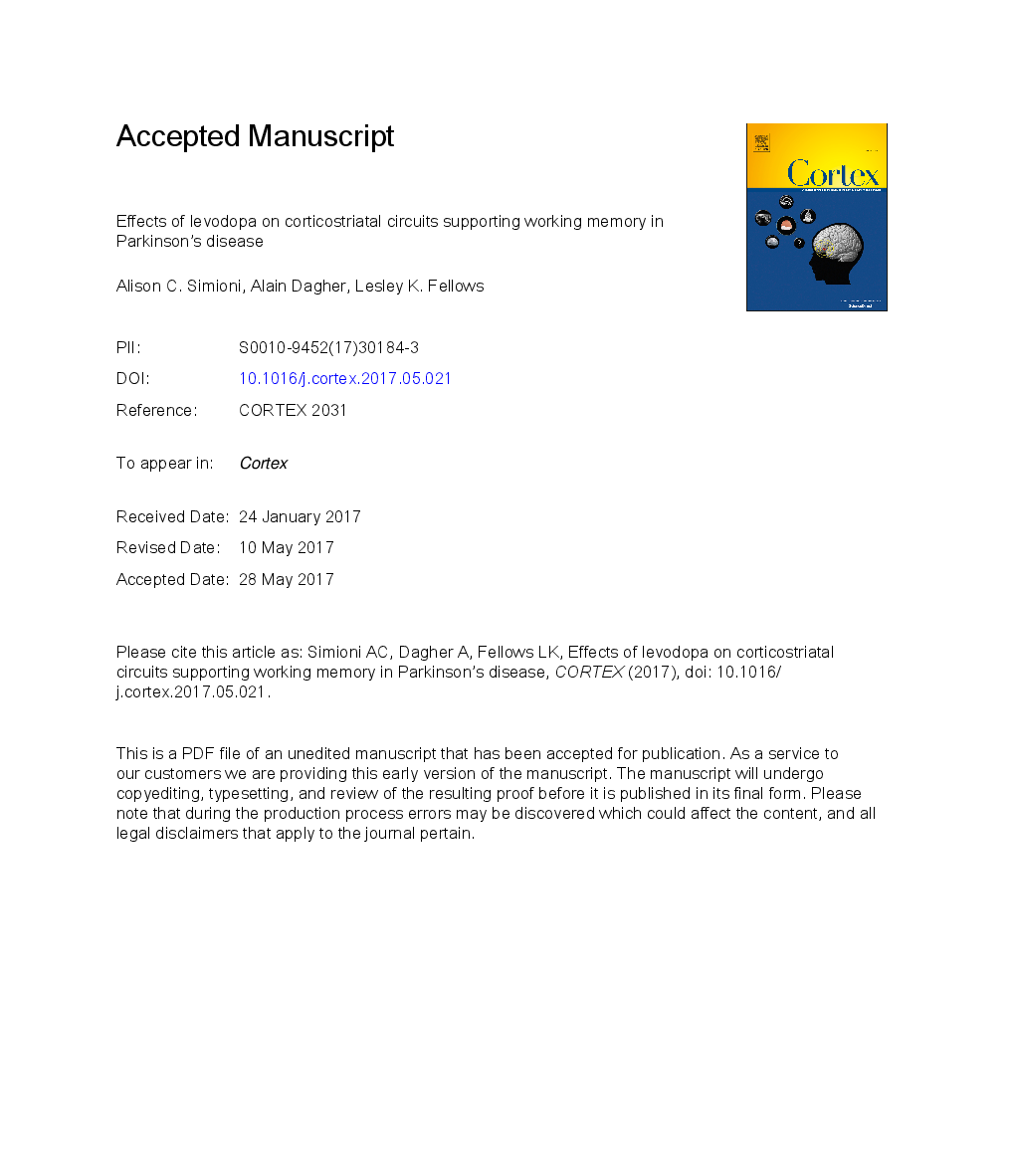ترجمه فارسی عنوان مقاله
اثرات لوودوپا در مدارهای خوراکی مقاومتی که از حافظه کاری در بیماری پارکینسون حمایت می کنند
عنوان انگلیسی
Effects of levodopa on corticostriatal circuits supporting working memory in Parkinson's disease
| کد مقاله | سال انتشار | تعداد صفحات مقاله انگلیسی |
|---|---|---|
| 156490 | 2017 | 47 صفحه PDF |
منبع

Publisher : Elsevier - Science Direct (الزویر - ساینس دایرکت)
Journal : Cortex, Volume 93, August 2017, Pages 193-205

